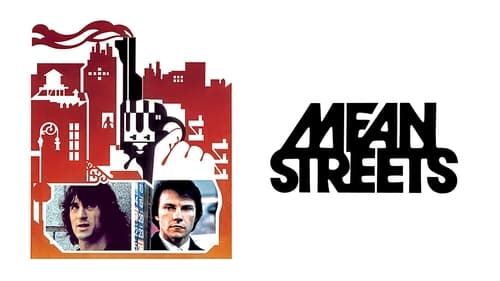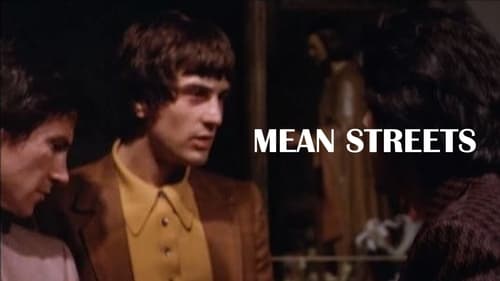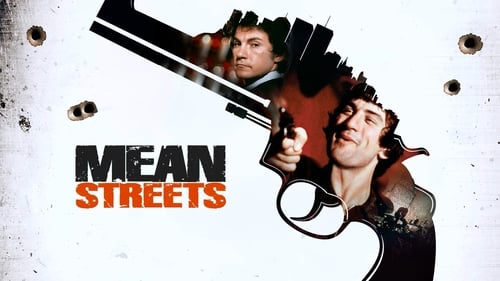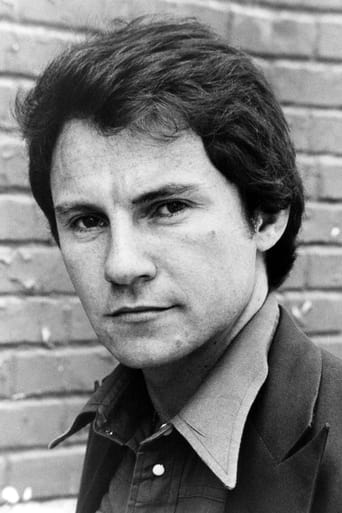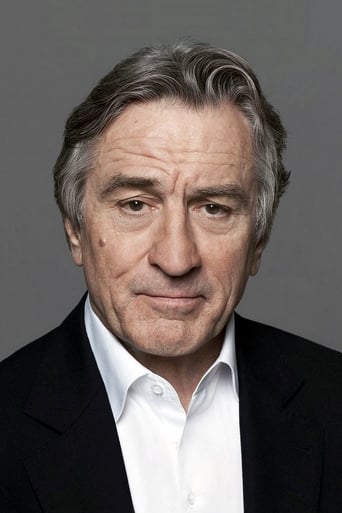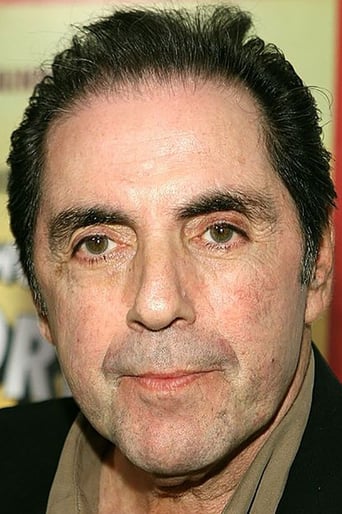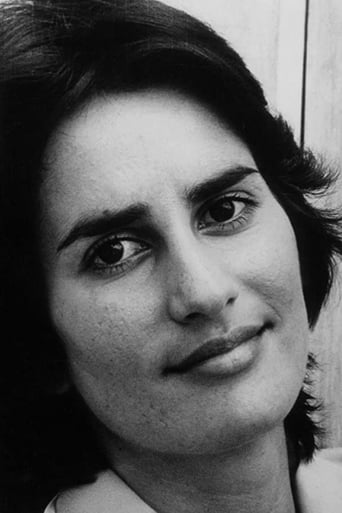Konterr
Brilliant and touching
Merolliv
I really wanted to like this movie. I feel terribly cynical trashing it, and that's why I'm giving it a middling 5. Actually, I'm giving it a 5 because there were some superb performances.
Livestonth
I am only giving this movie a 1 for the great cast, though I can't imagine what any of them were thinking. This movie was horrible
Zandra
The movie turns out to be a little better than the average. Starting from a romantic formula often seen in the cinema, it ends in the most predictable (and somewhat bland) way.
donaldricco
I was completely bored watching this movie. The character of Johnny Boy is one of the most annoying characters I've ever seen on film and I have no idea why anyone would protect him, help him, or assist him in any way, ever! I wanted to shoot him on my tv minutes after he came on screen! And what is the plot of this story? The most annoying man on earth owes someone money and he doesn't' pay? I'd give it just one star, but the music was good.
pabloliveshere
I'm going to give this review exactly the amount of time the film deserves, i.e. not much.I sat through about 40 minutes of this and came to two conclusions - 1, it's boring in a dreary, uneventful way, and 2, the sound design is all over the place, with much of the dialogue lost to music.I didn't care about any of the characters, and the pool-hall fight sequence was laughably bad in terms of choreography.This is a classic?!?! What, because it's made by a certain director and stars certain actors?
powermandan
Mean Streets is a deeply personal crime film from Martin Scorsese. After a slew of subpar films, he directs a semi-autobiographical that's a love letter to New York's Little Italy where he grew up. I have not always been a big fan of this film. I've always liked it, but found it to be inferior carbon copies of future hoodlum flicks done by Scorsese himself and others down the road. I'm not changing my mind about this being the blueprint or that Taxi Driver, Goodfellas and Do The Right Thing were better. I also found this to be pretty similar to On The Waterfront, which is one of my 25 favourite films ever! Keitel works for the mafia and has an attack of conscience where his best friend that needs to be destroyed. In Waterfront: Brando works for the mafia, has an attack of conscience, and needs to take a stand against his superiors. Luckily for Mean Streets, there is enough originality and raw power to separate it from those and see that Scorsese simply drew cinematic inspirations from oldies and he is constantly outdoing himself in years down the road. For any more negativity I've had about Mean Streets in the past, I watched it with the wrong people and on bad days. The movie doesn't change, but days do. In the "neighbourhood" Charlie (Hardy Keitel's breakout role) is a devout Catholic and well- respected gangster. He goes to church to pay for his sins, but constantly saying standard prayers isn't much retribution. Scorsese voices Charlie's conscience and says "You don't pay for your sins in church, you do it in the streets." So true. This can be applied for all walks of life in how merely saying prayers isn't nearly enough that needs to be done to rectify sins. Charlie lusts and gets involved in violence and drugs, so his guilt is always there. He is caught in a vicious circle: he wants to live a clean life, but also wants to stay loyal and respectable among his peers. Rising to the top of the mafia underworld may give him some freedom. He works for his cousins and friends who are mobsters and loan sharks. His best friend is the psychotic Johnny Boy (Robert De Niro's breakout role too) who is less respectable than Charlie. The first half or so takes the viewer into the hellacious underworld. We get to see the shenanigans that they must deal with on a regular basis. In the basement bar, Scorsese carefully illuminates the scenery blood red. New York itself looks pretty normal. But the hangouts are their own worlds that look evil and vicious. There's areas that are not red but have minimal lighting for a similar effect. They are dungeons in the underworld. Sometimes Scorsese uses hand-held cameras to increase the intensity. Charlie is almost a free agent in the underworld he is so respected. Even the people not affiliated with his family like him. But Johnny Boy is becoming increasingly more hated by everyone. He doesn't pay his debts and his violent nature is getting out of control. He is like Joe Pesci in Goodfellas, but De Niro is much wilder. Charlie starts having a fling with Johnny's cousin and even she hates him. Charlie is conflicted in his loyalties, but he knows Johnny needs to be stopped. The intensity between these characters keeps growing and never stops until the wild finale. De Niro and Keitel are so good. De Niro was deserving on an Oscar win; Keitel, a nomination (1973 was a pretty competitive year for leads). Mean Streets paints the mafia in such a ugly light, not seen since the film-noir days. Wild The Godfather movies painted the mafia with a black brush, it isn't very common seeing mafia that high up. It is more common seeing mafia really low standing that aren't even the most elite in the city. And Scorsese creates an intimate portrait of life in crime and the consequences that come with it all. Scorsese shows us early on that he's a masterful film maker and that the two leads will take cinema by storm.
avik-basu1889
Although Martin Scorsese had made a few movies before Mean Streets, this was the film that brought him critical acclaim for the first time in a big way and this was the film that showcased the birth of a master with a unique sense of style and cinematic language. The screenplay for Mean Streets written by Scorsese and Mardik Martin was based on a story idea by Scorsese himself. He really wanted to make a film about the life that he himself was very familiar with coming from an Italian-American neighbourhood. The film certainly feels very personal and has to be a cinematic reflection of his early life and experiences.I think a comparison between Mean Streets and two other Scorsese gangster films namely Goodfellas and Casino is interesting. While all the three do come under the bracket of gangster films, but I think Mean Streets is significantly distinct from Goodfellas and Casino in the way it is structured. Goodfellas is very tightly structured and the narrative always moves in a very specific direction. Mean Streets on the other hand is very loosely structured. The screenplay doesn't have a lot happening in it and the narrative is very episodic in nature. Scorsese uses this loose and episodic narrative structure to his benefit as it helps him to really pay attention to and develop the characters that make up the film. Charlie and Johnny Boy's relationship serves as the backbone of the film, but in reality Mean Streets is Charlie's story. The film is about him, his insecurity, his religious ideas, his friends, his neighbourhood, his family and last but by no means least, his guilt. Although Scorsese introduces all the boys of the neighbourhood i.e. Charlie, Tony, Michael and Tony with their own individual scenes that established them as the guys we will follow, but in reality we actually get inside the mind of only Charlie. Charlie is a fascinating character. Right from the first shot of the film, we get to be aware of the fact that he is a devout Christian and he really fears the prospect of having to pay for all the sins of crime that he has committed. Unlike his other friends, he is respectful of people and has a heart. He is respectful of the lord, but wants to serve penance in his own way which is to help the wild and slightly dimwitted Johnny Boy. He wants to save Johnny Boy and in turn get saved himself by God. He actually confronts many instances where he can choose what he wants and what is good for him, but we see him repeatedly choosing the opposite. He is attracted to the black dancer, but the collective racism of his friends prevents him from approaching her. He can get together with Teresa, leave this life and this neighbourhood, but he doesn't and cites the prospect of owning a restaurant which his uncle dangled in front of him as the reason to not go away. Like his other friends in the locality, Charlie is also plagued by a firm sense of insecurity. He knows that the life he leads is not ideal and he knew as a devout Christian that he will pay, but he is fearful of going out of this neighbourhood and going somewhere where he is not a big-shot. So he in his mind manipulates things to satisfy himself that by doing good for Johnny Boy, he is serving his penance without having to leave this life. So although in an explicit sense the bond between Charlie and Johnny looks pure with a firm foundation of brotherhood, in a way Charlie does all he does for Johnny mainly because of selfish reasons and his personal desire to serve penance and get 'saved'. Ironically it's this desperation to save Johnny Boy that brings Charlie down. These complexities in Charlie work majorly because Scorsese in his storytelling doesn't judge Charlie. He is presented as a normal person with flaws.Even at such an early stage in his career, we can see Scorsese experimenting extensively here with new and fresh ideas and techniques for the time. There are so many examples of fantastic filmmaking like the super 8 footage during the opening credits with the Ronettes' 'Be My Baby', the long Steadicam shot when Charlie enters the bar dancing with the Rolling Stones' 'Tell Me' playing at the back, Johnny Boy's entrance in the film with 'Jumpin' Jack Flash' playing, etc. I also love how Scorsese shoots all the scenes in Tony's bar in striking red neon light giving the bar a hellish look. I don't think the film is flawless. The editing in a few scenes is a bit choppy which is expected from a young filmmaker. There is an extended scene in the bar where a Vietnam Veteran is given a party. I thought that scene went on for a little too long and became a little too flashy and self-indulgent. Apart from that, the film is brilliantly directed.All the actors perform well but clearly the headliners are Harvey Keitel and Robert De Niro. Keitel is absolutely brilliant in expressing the inner guilt and the complex and sometimes conflicting emotions distressing him along with his desperation to help out Johnny Boy. Robert De Niro in his first of many collaborations with Scorsese is absolutely dynamite as Johnny Boy. The manic eccentricity that De Niro gives to the character is highly impressive. Mean Streets isn't about the plot. It's about the characters and mainly about Charlie. It's about a character who is well aware of the fact that the life he leads is not ideal. But just like the boys in Fellini's 'I Vitelloni', the fear of exploring the unknown prevents him from abandoning the life he knows to pursue something new. Mean Streets gives us an glimpse of the beginning of one of the greatest filmmaking careers in all of film history.




